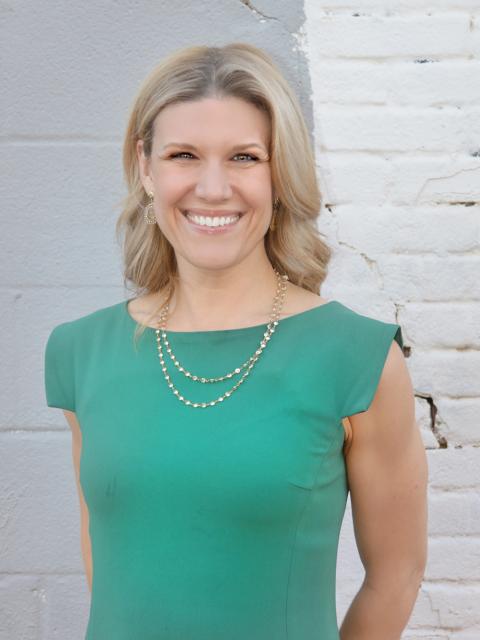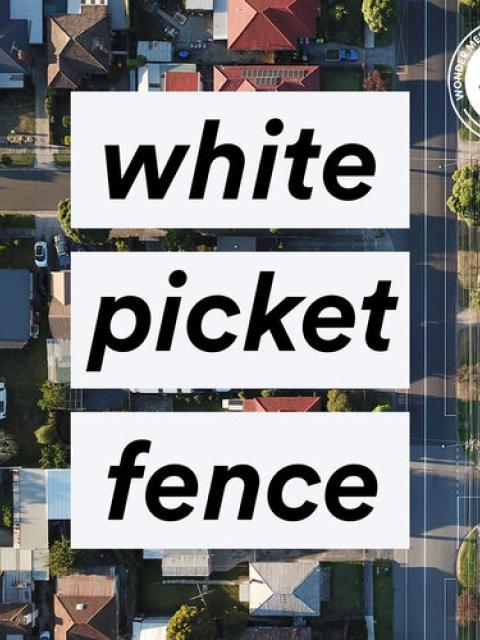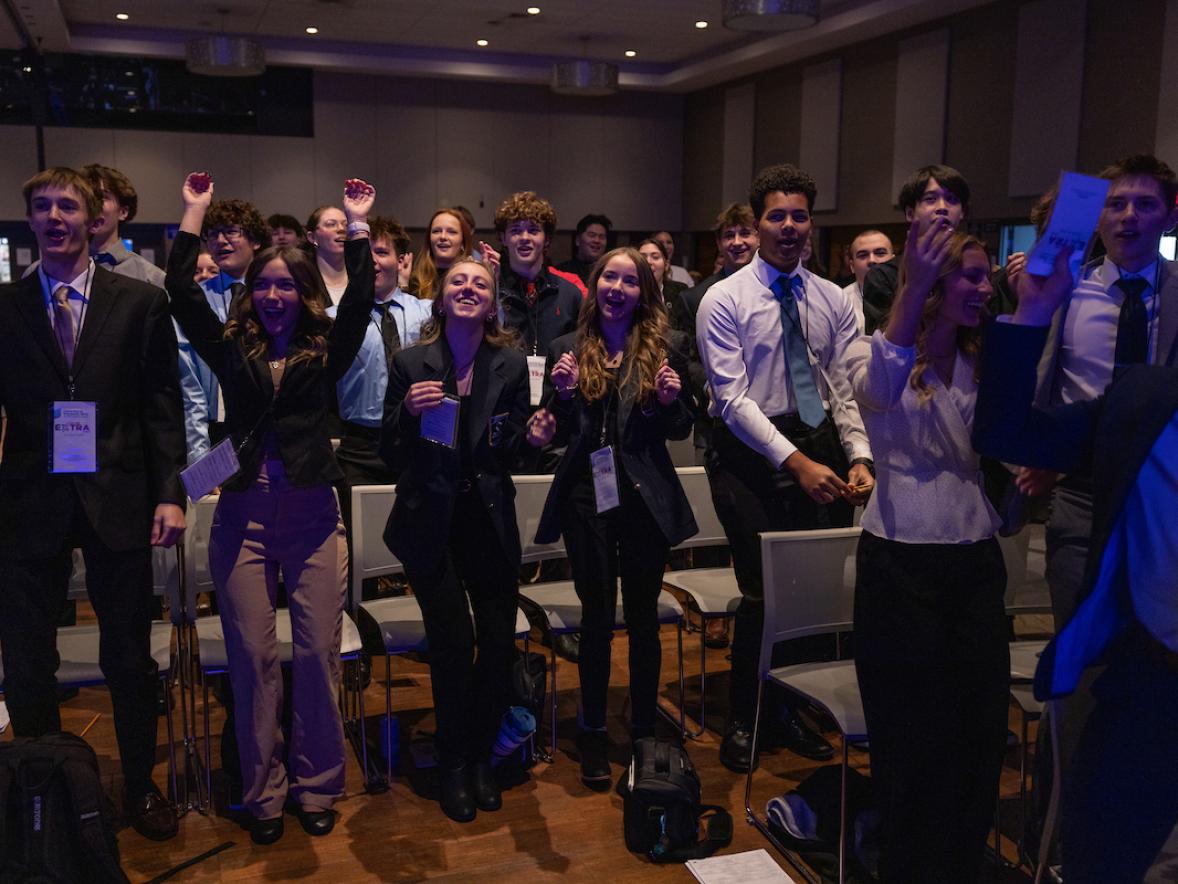A University of Wisconsin-Stout alumna is the host of a popular podcast that examines the politics of white women.
Julie Kohler, who graduated from UW-Stout in 1995, with degrees in human development and family studies and psychology, started the Wonder Media Network podcast White Picket Fence in October 2020. The show talks about the fractured – and often frustrating – politics of white women. It delves into the questions of why white women have, throughout history, aligned their politics with white men and not women of color and what to do about it.
“There is a long way to go to use our positions of privilege and power to advance racial justice in this country,” Kohler said of white women. “Those of us who think of ourselves as feminists and committed to gender justice and racial justice, I think there is a lot of reflection what we need to be doing about our complicity and structural inequities in this country, and how we can show up differently and better to improve the well-being for everyone. If we can show up and improve the well-being of those who are more marginalized, that really will improve well-being across the board. I felt a responsibility as a white woman to interrogate my complicity and where I needed to be doing better myself and also to be unpacking and making sense of historical patterns and political trends so that others…who share these values would have more information on how they could show up differently.”
The podcast was listed in Apple’s “New and Noteworthy” collection and made Luminary’s list of top five recommended podcasts.

In the podcast, Kohler highlights the importance of community organizing work. “How can you create policies that lift up and benefit everyone?” Kohler said. “Get involved in the democratic process and really work for changes at that local, state and federal level and build a commitment to a strong multi-racial democracy.”
Kohler is the president of BMK Consulting, a philanthropic and nonprofit consulting firm. For the last 10 years she served as Senior Vice President and Managing Director to the progressive donor network Democracy Alliance and as a fellow in residence at the National Women’s Law Center. She first attended UW-Stout to pursue a degree in early childhood education. “My first semester I realized that teaching probably wasn’t the right fit,” Kohler said. “My interest was in the policy issues affecting children and families.”
At UW-Stout, Kohler interned in Washington D.C. at the Child Welfare League of America, a group working on welfare reform and the social impact on women, children and families, and at the American Bar Association Center on Children and the Law, which promotes access to justice for children and families. She also took part in Study Abroad her senior year in London.
“While at UW-Stout I received some very important mentorship that helped encourage me on an academic and professional track that, although it hasn’t been linear, has been very valuable,” said Kohler, a writer whose work has appeared in CNN, The Washington Post, Fortune, The Daily Beast and other news outlets.
Kohler said one of her HDFS teachers, Denise Skinner, encouraged her to continue her education beyond her baccalaureate degrees. Kohler went to University of Minnesota for her master’s degree and doctorate in family and social science.
Skinner said Kohler was one of the best and brightest students she had at UW-Stout.
“Academically, Julie was very intelligent, articulate and focused,” Skinner said. “She was mature, poised, thoughtful and kind; her commitment to social justice issues was evident early on. She excelled in all of her courses but particularly in my Family Policy course for which she then became my teaching assistant her senior year. As an undergraduate, she performed at a graduate student level, contributing to a Teaching Family Policy Handbook that was published by the National Council on Family Relations, the major professional organization in our field. As Julie pursued her doctorate at the University of Minnesota our relationship shifted from student and professor to that of professional colleagues as we co-authored scholarly publications and presented at national conferences. It has been a thrill to follow Julie’s career. There is no doubt in my mind that she will continue to gain stature as a fierce and effective advocate for many social justice issues.”
After considering a career in academia, Kohler decided work in advocacy and philanthropy fit her better.
Women impacted by pandemic
This past year with the COVID-19 pandemic, many women ended up as caregivers and educators for their children as well as continuing to work. Kohler said. As a mother of a six-year-old son who was, until recently, attending school virtually, she has been living the “impossible double bind” of juggling family and career responsibilities. “There are going to be huge deficits we are going to have to make up for the over 2 million women who have been pushed out of the labor force this year because of their caregiving responsibilities,” Kohler said. “The path back for a lot of women is not clear. There could be clear economic consequences that could linger for years and an entire generation. It’s an incredibly dire situation for gender equality. Women, especially women of color, especially Black and brown women, have just been shouldering unbearable burdens during this past year. We’re going to have to think about how we support them going forward. We have sort of all just soldiered on, and it’s been a pretty intense burden.”
The upside is more attention is being given to caregiving than Kohler said she has never seen before in policy and political conversations. “It is now recognized it is not just a women’s policy or a children’s policy but as an essential economic policy,” she said. “We cannot have a strong economy unless we have greater public support for caregiving.” It’s an issue, Kohler said, that she’ll be diving into more deeply in season two of White Picket Fence, which will start production mid-year.
The American Rescue Plan is one of the most significant pieces of legislation in her lifetime, Kohler said. It gives parents, through the Child Tax Credit, monthly payments to help with the everyday expenses of raising a child and reduces the cost of and expands health care coverage, helping to address racial health inequities.
Kohler, who has spent most of her career helping generate resources for progressive organizations and social movements, said every organization should identify clear equity, diversity and inclusivity goals and benchmarks and continually reflect on their progress toward those goals. “This isn’t sort of something we check off the checklist. Done,” Kohler said. “This is how we build a level of continuing reflective practice and orientation that we are constantly trying to forward and better ourselves. We are all on a journey. We all have more to learn. We all can do better. So, let’s find a way to strengthen and build those bridges and to get more people engaged in this work.”

College is an excellent time to get involved in activism, Kohler sad. Whether it is getting involved in get-out-the-vote work or in groups trying to make changes at the state and federal levels. “I think so much history has been shaped by young peoples’ political engagement,” Kohler said. “I think the voices of college students and young people are so critical in a strong democracy. It is often the young people who are at the forefront of identifying injustices and being the clear moral voice for progress and thinking boldly and ambitiously. I encourage them not to be daunted. I have so much hope for the next generation of young leaders who are emerging. I’m inspired by their passion and their commitment and their vision of how we can improve our society.”
Democracy tested
This past year the United States has seen an insurrection at the U.S. Capitol, several prominent acts of white supremacy and violence across the country, and faces a dangerous threat of white nationalistic extremism, Kohler said. It is imperative those who object to and reject those values need to not stay on the sidelines but make their voices heard, she added.
“I think the fragility of our democracy has been demonstrated so clearly these last four years,” Kohler said. “Protecting it, strengthening it and continuing the very slow march toward racial justice in this country and healing -- this is not overnight work. This is a project that never really ends. It’s going to take every one of us committing ourselves and recommitting every day.”
The White Picket Fence podcast allowed Kohler to speak to activist organizations and talk about the importance of democracy and being a part of change at all levels of the community.
“One of the things I have been encouraged by is there seems to be a real appetite for that,” Kohler said. “There are a lot of people getting to work rather than waiting for someone else. They are putting together groups of like-minded people who share that value, who share that orientation and want to do better. They are diving in. I think that’s great.”







